Chris Prior one of the founding members of Gamers 4 Croydon, a political party that supports the introduction of an R18+ rating for video games, has written a response to the Michael Atkinson letter that we received last week. Gamers 4 Croydon will be running a candidate against Micheal Atkinson in the next state election.
This response is unedited by Grow up Australia and is also viewable on the Gamers 4 Croydon website in its original posting.
The letter from Michael Atkinson that this response refers to is viewable here.
In response to The Hon Michael Atkinson’s form letter on R18+ for games.
By Chris Prior
Mr Atkinson’s claims that there are other Attorneys-General supporting his position cannot be verified until they announce themselves (which has not happened so far). He is a senior minister in a state and country founded on the principles of representative and accountable government. If it is indeed the case and he is shielding other AGs from public scrutiny, he is undermining one of the very basic principles of our democracy: that the people know what their representatives are doing. Oddly, elsewhere in the same letter, Mr Atkinson claims to be “the one minister and member on SCAG who has stood against” an R18+ classification for games, a statement which directly contradicts his earlier claim of support from other Attorneys-General.
He says that he is “baffled and worried about why proponents of R.18+ games are putting up their hands and saying ‘Give us more cruel sex and extreme violence!'” This is a shamelessly emotive statement, and a classic straw man. While that may be what a tiny minority of people are saying, the majority of R18+ supporters merely wish to be allowed the same level of freedom as people who are allowed to watch R-rated films. Concurrently, there is a desire to prevent that same adult content from being accessed by minors.
Mr Atkinson refers to a number of games, suggesting that they would be allowed into Australia if an R18+ classification was introduced. He describes incentives for the use of illegal drugs, as well as a game concerned with the rape of a mother and daughter. In making these suggestions, he is either ignorant of, or wilfully ignoring the section of the classification guidelines which clearly states that “material that contains drug use and sexual violence related to incentives or rewards is Refused Classification”. If this is from ignorance then perhaps he should not be making decisions on a system he does not understand, while deception suggests he is more concerned with his prejudices against games than reality. The violence he describes as being present in some games refused classification can be found in any number of MA15+ titles, accessible to minors. The introduction of an R18+ classification would not allow the sexual violence and drug abuse content he described into the country and would make it more difficult for minors to access violent content.
The discussion paper mentioned at the outset has been in the works for some time. Contrary to Mr. Atkinson’s claims, he has been a major impediment to its release(1), insisting on the inclusion of images of content he claims would be allowable under and R18+ classification. Given his erroneous claims about allowable content within an R18+ classification, it would follow that these ‘examples’ would be equally dubious.
He raises concerns that, due to the widespread popularity of gaming, it would be difficult to prevent children from accessing R18+ games that their parents or older siblings had purchased. He claims this is not a problem faced by R18+ films, ignoring (again, either wilfully or through ignorance) that the massive popularity of DVDs means that films are equally accessible in the home. The regulation of this, however, is not the government’s responsibility, but that of parents. All three current generation consoles have parental controls that, if used properly, are significantly more difficult to bypass (if even possible) than it would be for a child to download an illegal version of an adult game. The same is true of recent home computer operating systems, where all have password protection capabilities to stop unauthorised use, and failing that, all have power cords that would easily prevent unsupervised use if removed.
Claiming that the infringement on adult freedom of choice is acceptable if it keeps the most extreme content off the shelves is problematic on a number of levels, the first of which being that ‘the most extreme content’ would still be kept off shelves with R18+ for games. The slightly less extreme content would be harder for children to access. As for the infringement being ‘acceptable’, that really isn’t his call. His job is to represent the people his decisions affect. A newer version of the Bond University study quoted by Mr Atkinson in his letter stated that roughly 90% of people were in favour of an R18+ classification for games, and to ignore that is anything but representative.
Talking further on the “trifling” impact on consumer choice of the lack of an R rating, he says that only a handful of games are RC, which must mean there is very little impact. What he doesn’t mention is that the overwhelming majority of games rated suitable for 15 year olds in Australia are rated higher elsewhere in the world. Over 90% of games classified MA15+ between June and November ’09 were rated 17+ in the US. All but one was rated either 16+ or 18+ in Europe. The “trifling” impact is that games intended for adults – recognised as such internationally – are available to Australian children. This is a failing of a classification system that says – first and foremost – that “adults should be able to read, hear and see what they want”, while not providing an appropriate classification for that content.
The claim that exposure to violent media is harmful, and more-so when that media is interactive is not by any means accepted as fact amongst the scientific community. For every study that finds video games cause violence, others find that there is no such link. The studies that have found causal links have received significant peer criticism of their methods, which have gone so far as ignoring the evidence gathered to come to a seemingly predetermined conclusion(2). Similarly, there is no reliable evidence that interactivity increases the impact of media. Regardless, given that interactivity is explicitly taken into account in the classification guidelines, an R18+ game and R18+ film should have the same ‘impact’.
It is true that edits can be made to prevent a game from being refused classification. But this usually means games are slightly edited and made available to teenagers. When Fallout 3 was edited to be allowed an MA rating, the edited version was distributed worldwide. Still, it was rated 17+ or 18+ in the US, Europe and New Zealand. Contrary to Mr Atkinson’s claims, the solution to this problem is to introduce an R18+ classification for games. It would provide an appropriate rating for adult-oriented games, while providing a clearer warning about the nature of the game to parents who might otherwise buy an unsuitable game for their child. While he is correct in saying the Classification Board must follow the guidelines provided by law, it is not something that can be done: the current system contradicts itself, and so the board must decide which directive to follow. The only solution to this is to amend the guidelines and remove the contradiction.
Mr Atkinson suggests that if you ask “an adult” how they feel about playing video games, they will “give you … opinion only.” Putting aside that the asked question was in fact about opinion, the implied meaning is that gamers are incapable of examining how games affect them. I, as “an adult” have a range of experiences with games of varied genres. The violent games Mr Atkinson so reviles help me reduce stress and express frustration, just as some people hit a boxing bag or go for a run. While this has not been empirically studied in me personally, studies have discovered such a response among those who play video games(3).
On the surface, the desensitizing effect seen in the Comfortably Numb study seems worrying. However the study fails to address the difference between immediate and lasting impact. It shows only a short-term acclimatisation to violence, and any claims of long-term desensitisation based on the results of this study are unfounded speculation.
What Mr Atkinson’s letter demonstrates is little more than that he has a prejudice against violent video games. Much of the ‘evidence’ he provides to support his claim is dubious or patently false, and it shows a much greater interest in distracting people with emotive arguments than thoughtful consideration of available information. While he is of course entitled to dislike violence in video games (and any other media for that matter), his personal distaste is not sufficient reason to curtail the rights of responsible adults, expose minors to adult content, and ignore the opinions of an overwhelming majority of Australians.
He is, after all, supposed to be a representative.
1
2
3
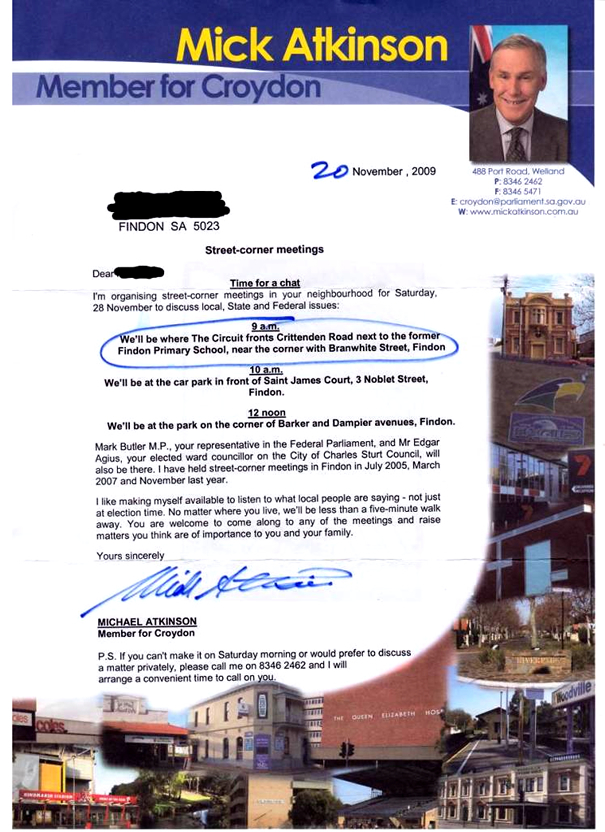


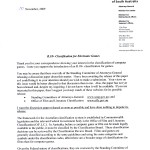
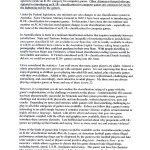
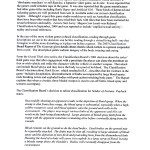
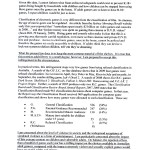
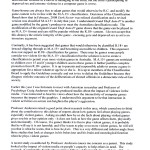
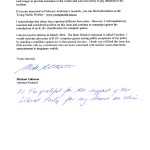
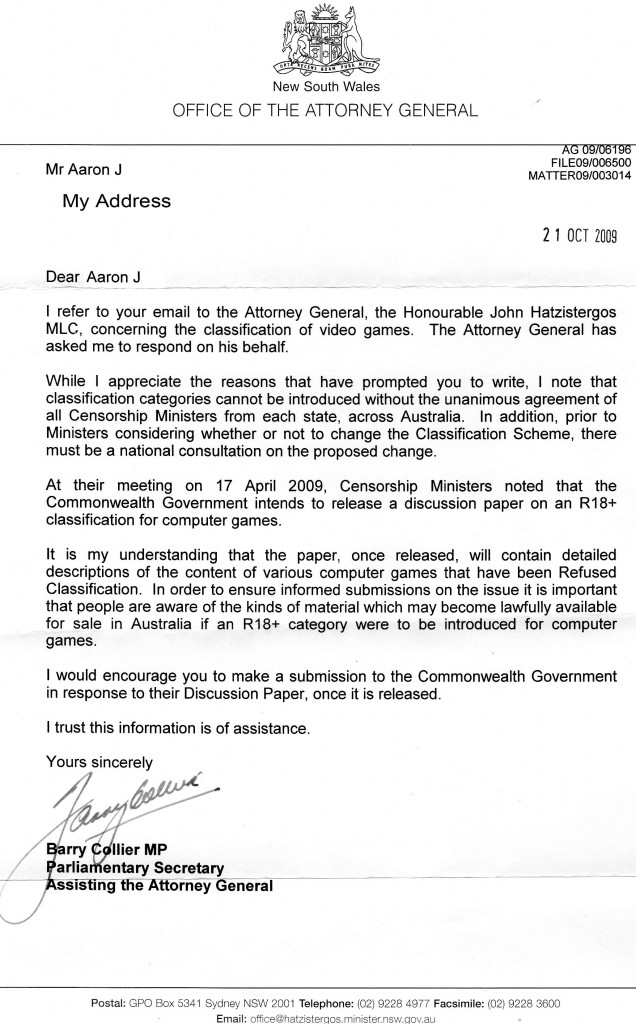
 Twitter
Twitter